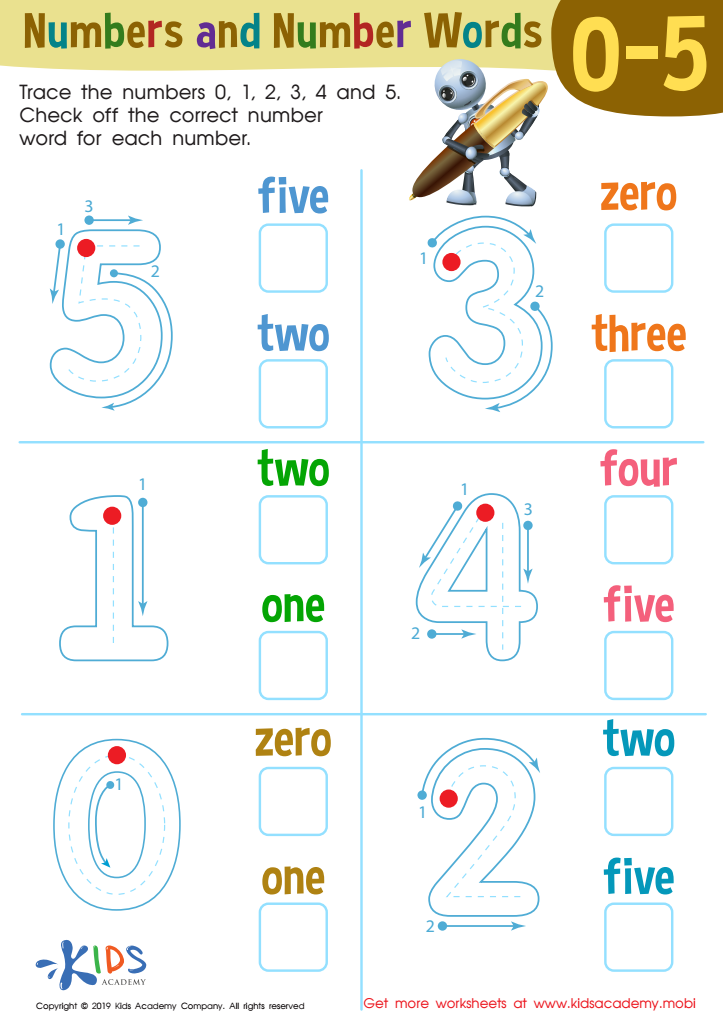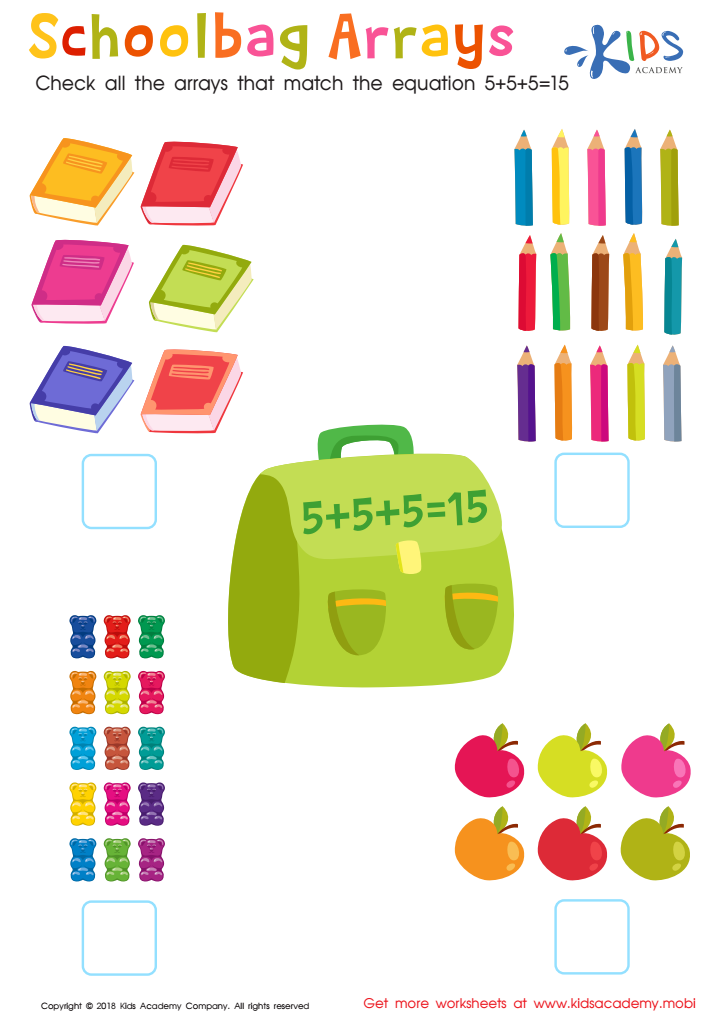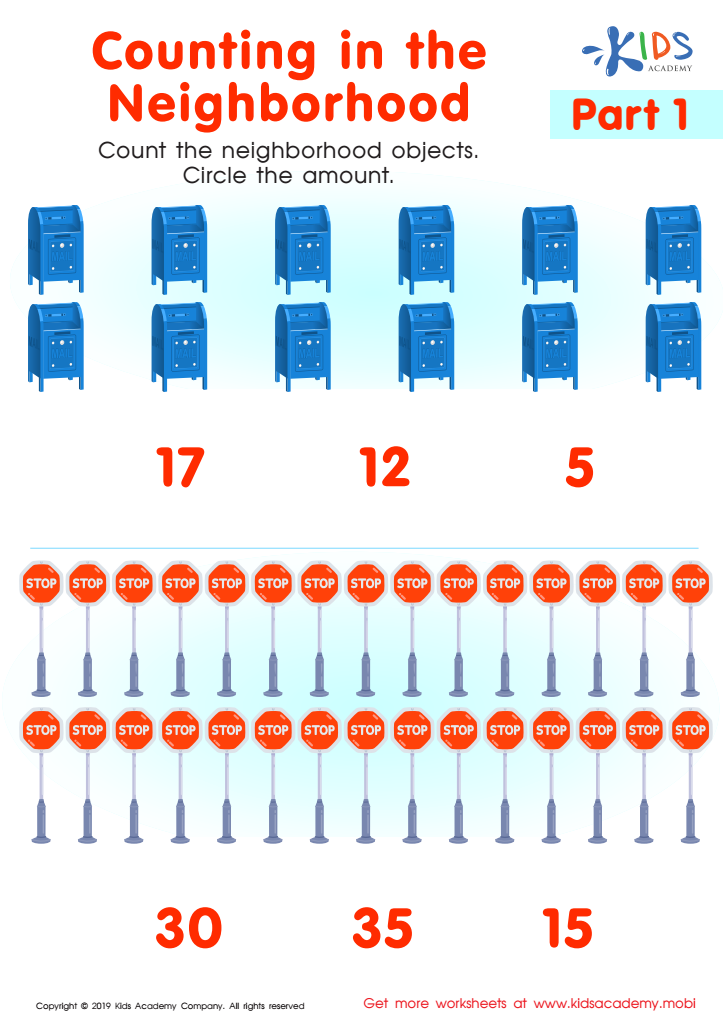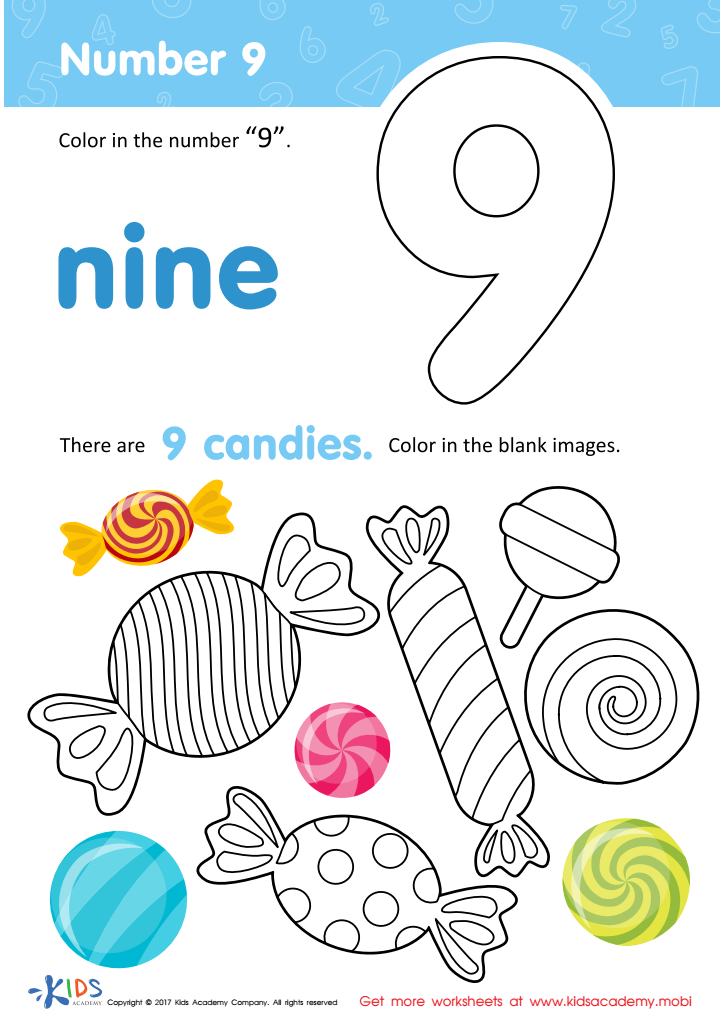Cognitive Development Easy Numbers Worksheets for Ages 7-9
5 filtered results
-
From - To
Boost your child's cognitive development with our engaging Easy Numbers Worksheets designed specifically for ages 7-9! These worksheets focus on enhancing critical thinking, problem-solving, and number recognition skills through fun and interactive activities. Perfect for early learners, the exercises encourage children to explore mathematical concepts at their own pace while reinforcing foundational math skills. Each worksheet is crafted to build confidence and foster a love for learning in young minds. Whether at home or in the classroom, our easy-to-use worksheets make math practice enjoyable and effective. Unlock your child's potential today with our thoughtfully designed resources!


Numbers and Number Words Worksheet


Schoolbag Arrays Worksheet


Counting in the Neighborhood Part1 Worksheet


Colorful Arrays Bingo Worksheet


Number 9 Printable
Cognitive development in children aged 7-9 is crucial as this is a pivotal stage for developing foundational skills in critical thinking, problem-solving, and understanding numbers. During these years, children transition from concrete operational thinking, where they learn to manipulate and understand basic arithmetic, to more abstract concepts. This period lays the groundwork for future mathematical proficiency and overall academic success.
Parents and teachers should prioritize cognitive development in this age group because a strong grasp of numerical concepts significantly impacts children's self-confidence and attitude towards learning. Engaging children with easy numbers enhances their ability to think logically, recognize patterns, and apply insights across various contexts. Furthermore, a solid grounding in math supports success in not only mathematics but also in science and everyday life situations.
Supporting cognitive development through activities and strategies tailored for young learners promotes a positive learning environment, fosters curiosity, and encourages resilience in the face of challenges. Additionally, it helps children develop social skills as they collaborate and communicate mathematical ideas with peers. Investing time and resources in fostering cognitive skills allows children to thrive academically and personally, ultimately equipping them with essential life skills they will carry into adulthood.
 Assign to My Students
Assign to My Students




















